Storytelling is a powerful tool that can be used to captivate young minds, variouslyThe Benefits of Storytelling in Early Childhood Education plays a crucial role in early childhood education, offering numerous benefits to young children.
Parents and educators can create a rich and engaging learning environment that fosters a love of learning and a strong foundation for future academic success by incorporating Storytelling into early childhood education.
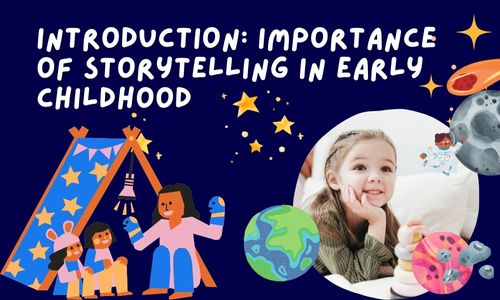
Introduction: Importance of Storytelling in Early Childhood
Storytelling in early childhood education is emerging as one of the most influential and practical tools for child development.
The importance of Storytelling in early childhood goes beyond just telling a tale; it engages young minds, introduces them to new concepts, and supports emotional, social, and language development.
Storytelling has bridged the gap between fantasy and reality for generations, helping children comprehend complex ideas in simple, relatable ways.
This article will explore the essential benefits of Storytelling in early childhood, showing how it shapes young minds and prepares them for lifelong learning.
School Time:- 10 Creative Activities for LKG Class: Learning Through Fun!

What is Storytelling in Early Childhood?
This question comes into every parent’s mind: What is Storytelling in early childhood? Does it involve the creative art of sharing narratives, tales, and personal experiences with young children?
These stories can be conveyed through various means, such as reading books, using puppets, enacting scenes, or even creating stories from imagination.
Storytelling in early childhood is not only about reading from a book; it includes animated gestures, tone modulations, and interactive questioning that engage children deeply.
In early childhood settings, Storytelling becomes an interactive, participatory activity that encourages children to ask questions, predict outcomes, and share their ideas.
These experiences play a fundamental role in fostering children’s creativity, language skills, and empathy, contributing significantly to their development.

Benefits of Storytelling in Early Childhood Education
The benefits of Storytelling in early childhood education extend beyond simple amusement or distractionStorytelling is a powerful tool in supporting a child’s emotional, intellectual, and social developmentHere are some key benefits of Storytelling for young children:
- Language Development through Stories
- Building Emotional Intelligence and Empathy
- Stimulating Creativity and Imagination
- Enhancing Listening Skills and Focus
- Developing Problem-Solving Skills
- Encouraging a Love for Reading and Learning
- Building Social Skills and Collaboration
Let’s discuss these benefits of Storytelling in early childhood in detail
1Language Development through Stories
One of the most immediate benefits of Storytelling in early childhood is enhancing language skillsThrough stories, children learn new words, understand sentence structure, and pick up on grammar.
They naturally begin to recognize sentence patterns and language rhythms as they listenThis exposure builds a strong language foundation, enriching their vocabulary and preparing them for reading and writing.
2Building Emotional Intelligence and Empathy
Storytelling provides a safe space for children to explore emotions and understand the feelings of other children who hear about a character’s happiness, sadness, or fear; they learn to identify these emotions in themselves and others.
This process of emotional identification helps build empathyFor example, if a character feels scared in a story, children relate to that fear, creating emotional intelligence.
Drawing Time:- Best Tree House Drawing for Kids: 8 Creative Activity Ideas
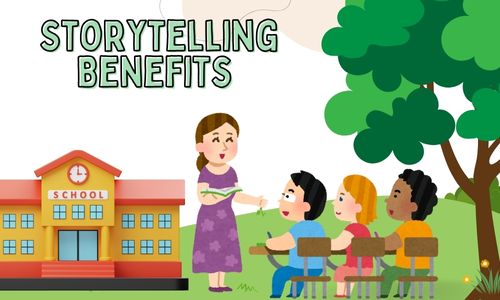
3Stimulating Creativity and Imagination
Another essential benefit of Storytelling in early childhood is its opportunity to stimulate creativityAs stories transport children to different places and times, they expand their imaginative boundaries.
Whether envisioning a world of talking animals or magical forests, children build the ability to think creativelyThis imaginative power is foundational in problem-solving and lateral thinking skills, which are essential later in life.
4Enhancing Listening Skills and Focus
In our highly distracted world, developing listening skills and focus is essentialStorytelling encourages children to listen attentively to follow the plot and understand the characters.
When children are interested in a story, they naturally become more focusedThis primarily benefits early learners, as focused listening builds valuable cognitive skills in academic settings and social interactions.
5Developing Problem-Solving Skills
Through stories, children learn that characters often face problems that need solvingObserving how characters approach these issues can provide valuable insights into problem-solving, helping children apply similar logic.
For Teachers:- 11 Best Engaging Activities for Nursery Class: Learn & Play
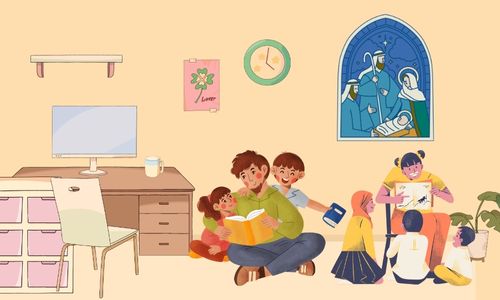
6Encouraging a Love for Reading and Learning
Introducing children to stories early fosters a lifelong appreciation for readingThe benefits of Storytelling in early childhood extend to a love of books and stories, which often motivates children to become enthusiastic readers.
This early interest in reading has been shown to support academic success and a positive relationship with learning.
7Building Social Skills and Collaboration
Storytelling in group settings allows children to share ideas, listen to others, and take turns.
These experiences are invaluable for social development, as they teach children the importance of listening, sharing, and respecting others’ perspectives.

Interactive Storytelling Techniques for Educators and Parents
Interactive storytelling techniques can make the experience more engaging and enjoyable for childrenHere are some approaches that educators and parents can use to bring stories to life and maximize the benefits of Storytelling in early childhood:
- Ask Questions: During Storytelling, pause to ask children questions about the storyFor example, “What do you think will happen next?” or “How do you think the character feels right now?” These questions stimulate critical thinking and invite children to engage with the story more deeply.
- Use Props: Adding puppets, visual aids, or costumes can enhance the storytelling experience and hold children’s attentionProps make stories feel more natural and tangible, allowing children to connect with characters and events hands-only.
- Encourage Role-Playing: Inviting children to act out parts of the story helps reinforce the narrative and allows them to embody the charactersThis active participation supports memory retention and adds an engagement layer to the story.
- Introduce Rhymes and Repetition: Many classic children’s stories contain rhyming or repetitive phrases that are easy for children to rememberAdding these elements can make the storytelling experience fun and help children learn language patterns.
- Dramatization: Acting out scenes helps children visualize characters and emotions.
- Incorporating Rhymes or Songs: Simple rhymes or songs capture a child’s attention and make stories more memorable.
- Participation: Invite children to share ideas on how the story should progress or end.
Conclusion: Lasting Impact of Storytelling on Child Growth
The benefits of Storytelling in early childhood are undeniable, as it touches every aspect of a child’s development, from language acquisition to emotional growth.
Beyond these benefits, Storytelling leaves children with lasting memories, fostering a love for books and stories that often extends into adulthood.
Storytelling equips children with invaluable skills that pave the way for a lifetime of curiosity, empathy, and understanding.
Whether at home or in the classroom, Storytelling is a powerful tool that nurtures the heart and mindBy actively engaging children through creative narratives, we provide them with the building blocks of empathy, creativity, and language that shape them into confident, well-rounded individuals.
Thanks for reading our blog about the Benefits of Storytelling in Early ChildhoodPlease do share.
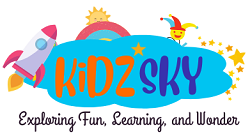

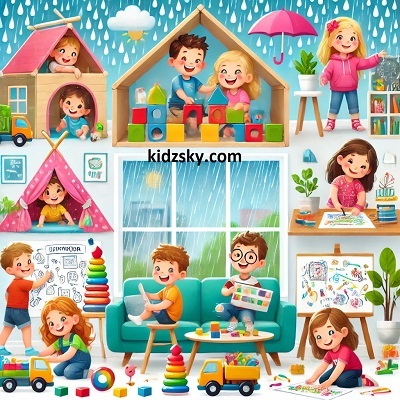

[…] Most Liked:- 7 Best Benefits of Storytelling in Early Childhood Education […]
[…] Most Liked:- 7 Best Benefits of Storytelling in Early Childhood Education […]
[…] Most Liked:- 7 Best Benefits of Storytelling in Early Childhood Education […]
[…] Most Liked:- 7 Best Benefits of Storytelling in Early Childhood Education […]